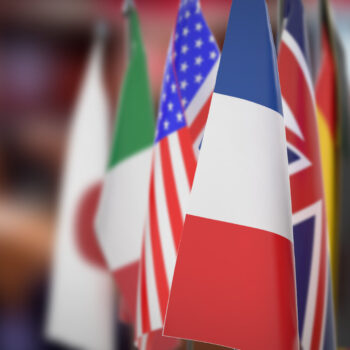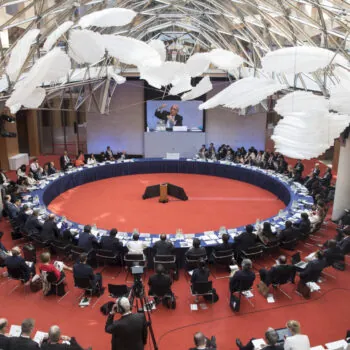‘Governments have to walk out of Warsaw knowing their next step is to go home and do the necessary internal analysis, so that they are in a position to put their national contribution on the table towards a global solution’. Christiana Figueres, Executive Secretary of the UNFCCC.
Without more investment in climate diplomacy, a 2015 climate deal will be severely compromised warns new climate diplomacy report.
With the support of CDKN, E3G’s latest report outlines the urgent need for governments, campaigners and communicators to reinvest in Climate Diplomacy. The absence of agreement on an effective international regime to limit climate risk below dangerous levels represents one of the greatest on-going failures of modern diplomacy.
E3G’s new report entitled ‘Understanding Climate Diplomacy – building diplomatic capacity and systems to avoid dangerous climate change’ defines and undertakes a strategic review of climate diplomacy to date providing options and strategies for improving diplomatic efforts.
Warsaw is the penultimate COP before a global agreement is due to be reached in Paris 2015. Whilst inside the negotiations negotiators will work toward firming up the framework for agreement in Paris, the COP in Warsaw must also send a strong signal to governments to begin developing their national commitments for 2020 and beyond.
Climate diplomacy is a complex process. The UNFCCC is at the heart of this regime but action at national, city and sector level will fuel the process for global agreement.
No country can control the climate risk it faces on its own. Limiting climate risk requires an effective, complex multi-layered international regime grounded in national action. However, whilst governments, campaigners and communicators are focusing on delivering national action, they are disinvesting from climate diplomacy.
The spectre of Copenhagen has diverted attention from the significance of collective action, but bottom-up solutions alone cannot catalyse action at the speed and scale necessary to keep the world below 2°C. For countries to leave Warsaw with their ‘homework’ in hand, to begin establishing their national contributions – governments, campaigners and communicators must begin reinvesting in climate diplomacy.
Climate diplomacy is the interface between national interest debates and international cooperation. Climate diplomacy ensures the accurate assessment of other countries’ interests and intentions, and finds the space for agreement. Climate diplomacy must ensure national priorities are reflected and understood in the often abstract world of international climate change agreements.
Tom Burke, founding director of E3G states that,
‘Too many governments put more effort into the negotiations than the diplomacy and then wonder why they fail to meet their goal.’
In the months following Warsaw governments will need to begin building their climate diplomacy capacity at home to start asking themselves some tough questions in the lead up to Paris. How much climate risk is our country prepared to live with? How will we contribute to minimising the risk endured by other more or less vulnerable countries?
Climate diplomacy must draw on the best practice of modern diplomacy and also innovate for new approaches. To succeed, climate diplomacy requires a ‘whole of government’ approach. The shift to a low carbon world requires influencing and aligning climate with other national interest priorities. When countries are doing their ‘homework’, in developing offers they must consider the implications of climate risk to their economic development and the benefits of action to their domestic context as well as the implications to multilateralism.
As John Ashton, the UK’s first Special Representative on Climate Change commented speaking on ABC Radio National,
‘Diplomacy starts with what you do rather than what you say’.
Climate change cannot be considered as a remote and theoretical threat; decision makers must internalise the threat and act upon the risk. At the Ban Ki Moon summit in September 2014, offers and not rhetoric, will determine whether the world is serious in responding to the threat of climate risk.
Warsaw fires the starting gun for discussions in capitals in the lead up to 2015. The race is on and reinvestment in climate diplomacy is essential to generate adequate offers that incorporate the systemic risk that climate change presents.


